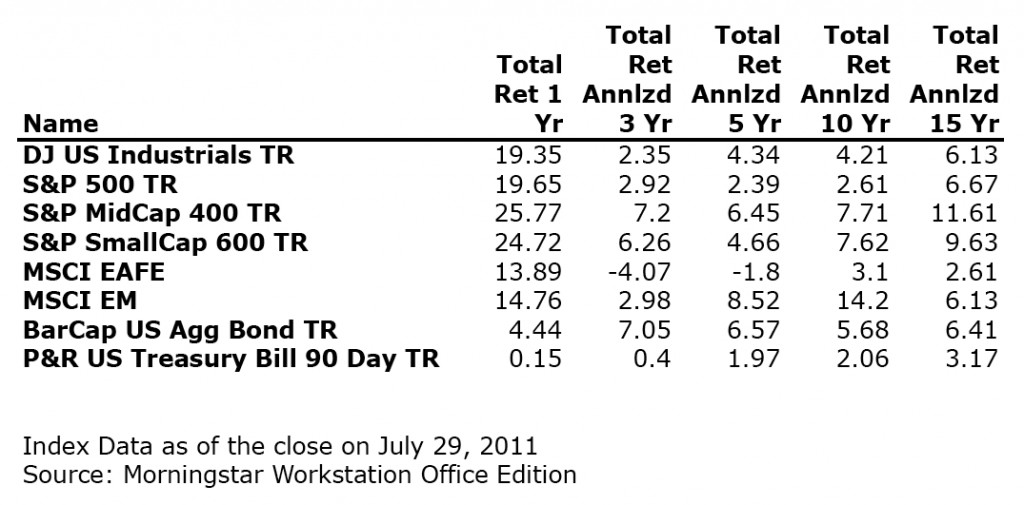 We’ve heard so much about the “lost decade” we may feel investing for the long-term is foolish. Numerous articles suggest the tried and true method of asset allocation is dead.
We’ve heard so much about the “lost decade” we may feel investing for the long-term is foolish. Numerous articles suggest the tried and true method of asset allocation is dead.
“Buy Gold!” “Buy gold, guns, and two years worth of food” “Time the market” “Buy bonds, sell stocks!”
But, did investors really lose a decade?
Most people, particularly those working off debt, invest mainly in their 401k or other retirement plan. Few limit their investments to the Dow Jones Industrial Average (30 stocks), or the S&P 500, both representing large US based companies. The fund choices within a retirement plan usually offer mid-sized companies, small-sized companies, international stocks, and emerging stocks.
They also include various bond funds and some may include REIT’s (real estate) or commodity funds (gold, silver, etc.) So, how did a diversified investor who allocated their assets in a variety of stock funds and bond funds do over the past decade?
The table below shows the total return of indices representing both the capital gain, or loss, and the dividend income for the stocks represented by the index.
 These returns include the fall of the market in 2002 and the bear market of 2007-2009!
These returns include the fall of the market in 2002 and the bear market of 2007-2009!
The key to investing is staying in the market. These returns are annualized but most of these indices had substantial drops in a given year like 2002 and 2008. You should not expect positive returns every year. And you should invest only long-term money in the markets. Most advisors define long-term as at least 7 years. This is because stocks can fall substantially in the short-term.
So, did we lose a decade? If you measure the market ending on March 6, 2009, yes. But for the most part, ten year returns have been positive most of the time. Keep your money in the market and keep it diversified. Resist the urge to time the market or to put all your money in one asset, like gold. Focus on your life, not your money, and sleep well knowing your assets are not all in one basket. Diversification works, pure and simple, but you must remain in the markets over long time periods to benefit from the growth and income available to patient investors.
Image courtesy of Opacity
I agree with you here, Paul,
We definitely didn’t lose a decade. I think people are too quick to have such a short memory and reference point that triggers in their mind. We have a few really tough years and they say we’ve gone through what Japan did in their “lost decade.”
All of the major indices are still up as you noted above. It’s just not at the 2005 levels. GDP has been lost more than anything. We’re slightly experiencing some stagflation… so on.
BUT, for most of us, this is a once in a lifetime opportunity. Buy stocks cheap in our 401k’s, some even offer ROTH 401k’s. Unfortunately, most people won’t realize that they bought into the market cheap and that’s what made them wealthy in the long run.
No matter how crappy the economy is, being negative isn’t going to help. Look at the positives, as you seem to do, Paul!
Thanks Eric!
It’s seems fun to wallow in negativity, but, as you point out, it isn’t going to help. My goal is to help people understand that it isn’t just ok to focus on their lives, it’s actually better both for their lives and their investments.
On a side note, love your website and we have something beyond a focus on financial literacy in common. From 1994-2001, I was a trust officer. Great area to work with people and serve them beyond investment management. Good luck finishing your MBA and CFP!
Thanks for your comment!
Best, Paul